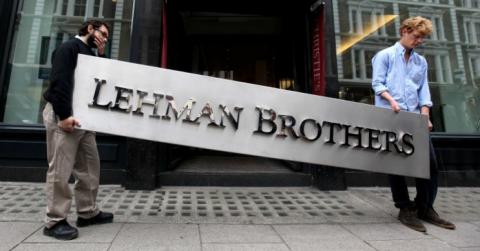Share
HISTORY REPEATS: Republicans Kill Regulations That Monitor Banks' Highest Risk Investments

On January 30, 2020, our Republican-led Federal Reserve, Office of the Comptroller of the Currency, and FDIC agreed to let big banks invest grandma’s checking account in venture capital firms that make incredibly risky investments often with dire results. What on earth could go wrong?
The Volcker rule was part of the Dodd-Frank financial regulatory package enacted into law in 2010. The regulation was named after former Fed Chairman Paul Volcker, who wanted to discourage banks from taking on excessive risk for profit-taking that did not ultimately benefit their customers. The regulation prohibited U.S. banks from engaging in short-term proprietary trading of securities, derivatives, and commodities.
The Federal Reserve is proposing tweaks to a key post-crisis bank regulation that would allow banks to be more active in risky markets like start-up investments and securitized loans.... expand the Volcker rule’s exemptions to allow banks to own stakes in or operate venture capital funds and credit funds.
Giant banks received billions in taxpayer bailouts during the financial crisis. Now Trump-appointed regulators are slashing safegards that prevent the same thing from happening all over again.
The regulatory change would allow banks to acquire or retain ownership interests in venture capital funds, or pools of investment for small businesses and start-ups. Under the existing rule, banks could invest in businesses but faced restrictions on directly owning a venture capital fund that invests in businesses.
The rule change would also give banks more leeway to invest or sponsor credit funds.... greater bank activity in the market for collateralized loan obligations (CLO), where banks were previously barred from involving themselves with CLO funds that included a debt component.... would allow banks to have direct ties to “qualifying” credit funds that have loans, debt instruments, and even some interest rate or foreign exchange derivatives.
Caving to Wall Street puts families – and our whole economy – at risk.
The changes were not universally embraced by those within the Fed. Governor Lael Brainard, an Obama-era appointee who has dissented on other regulatory changes in previous years, voted against the proposal.
“I am concerned that several of the proposed changes will weaken core protections in the Volcker rule and enable banking firms again to engage in high-risk activities related to covered funds,” Brainard said.
